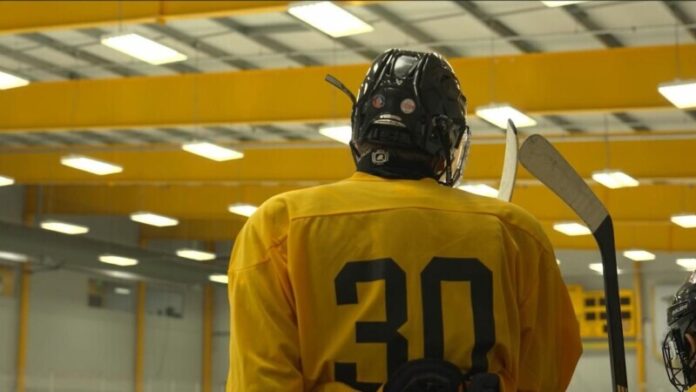Men and women from across the country with varying visual impairments gathered at Ford Ice Center Antioch last week for USA Hockey’s Blind Hockey Development Camp.
This marked the first time the Nashville Predators have played host to the program, which has been in existence since 2018. Camp attendees compete each year in hopes of making the roster and joining Team USA to compete in international play throughout the season leading to the Paralympics.
“Our team is comprised of 20 players – three goalies and 17 skaters,” said Mike Svac, Head Coach and General Manager for the USA Blind Hockey team. “Every year, we come together in August to reevaluate the existing team and make any changes. At this year’s camp, we’re on the ice four hours a day, Thursday through Sunday, and then we’ll go ahead and select the team for this upcoming year.”
The USA Blind Hockey team typically boasts a diverse roster, including both male and female players ranging in age from 15 to 54 years. Players come from all over the United States, traveling to Tennessee this year from as far as San Diego, Seattle, Maine and Washington, D.C. For those who have played competitive hockey earlier in their careers and lost their vision over time, Blind Hockey gives them an opportunity to continue to play the game they love. For those born with visual impairments, it’s a chance to learn a new sport and compete at a high level.
“These players are blind and visually impaired,” Svac said. “Our goalies are completely blind. We also have players who have lower vision, which we call B3’s and B2’s. If you have an opportunity to watch our game, our B3’s wear a black helmet and our B2’s wear a white helmet. B1’s [also] wear a white helmet. A B1 is a player that has no light vision.”
While similar to the sport of traditional ice hockey, blind hockey incorporates a few adaptations to make the game accessible to players who are blind or visually impaired. Some of these adaptations are as follows:
- The puck is made of 22-gauge steel and is 5.5 inches wide by 1 7/8 inches tall.
- The puck is hollow with eight ball bearings to make noise.
- The net is three feet tall and six feet wide.
- Players may not wear white colored jerseys or socks as they do not contrast well against the boards or the ice.
- Goalies are to wear a blindfold under their helmet to even the playing field.
- Slap shots are not permitted during play.
- Players may only stick tap in their offensive zone to allow for effective communication with their team.
“I’ve been legally blind my whole life, and I was very fortunate to find Blind Hockey,” Kevin Brown, a B1 defenseman in his sixth year playing for Team USA, said. “Pardon the pun, but it brought a light to my life and it’s a tremendous passion of mine to be back in a competitive environment… Getting to meet these teams and the players, they pushed me to excel and continue that passion to continue to grow.”
The Predators will also host an international series between Team USA and Team Canada Blind Hockey over the weekend of Oct. 13-15, 2023, at Ford Ice Center Antioch. Both teams will have closed practices on Thursday, Oct. 12 followed by games on Friday Oct. 13, Saturday, Oct. 14, and Sunday Oct. 15.
“We’re very appreciative to be here this week,” Svac said. “With the help of the Nashville Predators and also the Tennessee School for the Blind, our ultimate goal is to start a blind and visually impaired hockey program here for the community. We’re hoping that this will spark something for us to get the excitement around the game. With the support of the community, that’s going to be possible. And we’re excited about being here in October to compete with Canada.”
For more information on USA Hockey Blind Hockey, please visit USAHockey.com/BlindHockey.
Subscribe to our Newsletter!





















